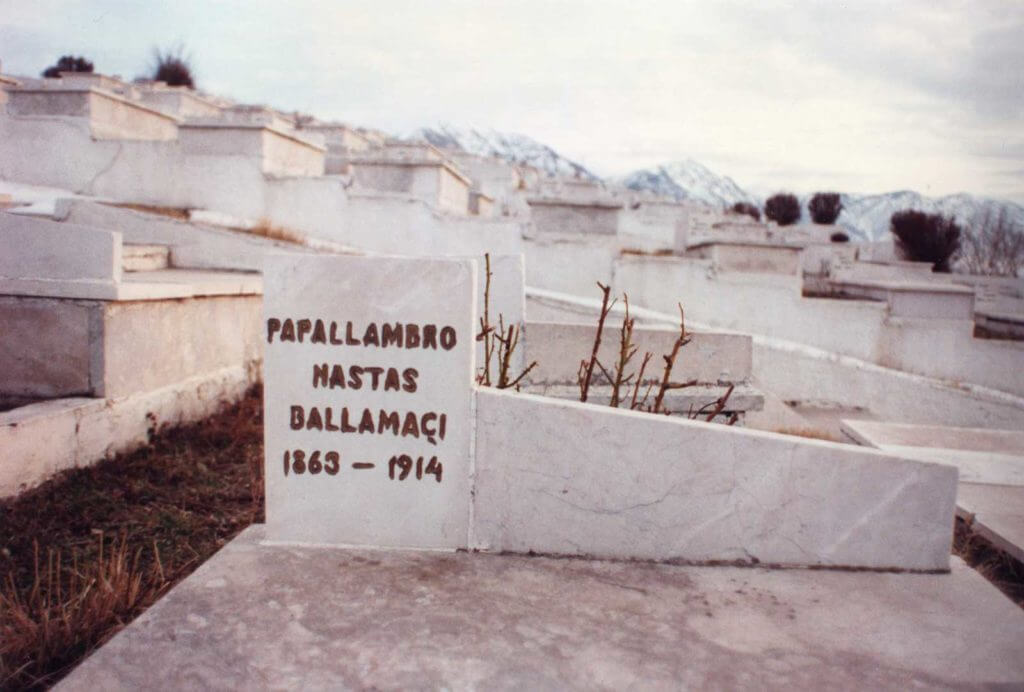From the Editor
The Balkans are exploding again and although our people are not yet caught up in it, there is a strong possibility that they soon will be. As long as the fighting is contained in Bosnia & Herzegovina and Croatia, most Aromanians will not be directly affected by it. But there are two flashpoints, Kosovo and Macedonia, that, if ignited, will surely endanger and perhaps even cost the lives of many of our people.
Kosovo is a region of the former Yugoslavia that is 80-90 percent Albanian; formerly autonomous, it was forcibly placed under Serbian rule in 1989 by strongman Slobodan Milosevic, the former communist who has remained in power by espousing ardent Serbian nationalism (chief blame for the bloodbath in Bosnia is assigned to Milosevic). There is unrest among the Albanians of Kosovo, who are essentially under military occupation by the Serbs. Albanian-language instruction in the universities and secondary schools was brought to an end; the Albanians boycotted these schools, started teaching their children at home, and elected their own Parliament (not recognized by the Serbs, who have prevented it from convening). The situation is very tense, and Cyrus Vance and Lord Owen, representing the United Nations and the European Community respectively, have been visiting the area and trying to keep the peace.
If war breaks out in Kosovo between Serbs and Albanians, next-door Albania will surely be pulled into it — as will the nearly half a million Albanians of Macedonia, who constitute between 20 and 25 percent of that republic (they are a majority in western Macedonia, which, like Kosovo, shares a border with Albania).
Macedonia has its own set of problems — both historical and in the present. The historical problems are so tangled and contentious that it would trivialize them to try to describe them in this brief column. Suffice it to say that during the Balkan Wars of 1912-13, Greece, Bulgaria, Serbia, Romania, and the Ottoman Turks all were pulled into a war over Macedonia, and the region continues to be a sore point between Greece, the former Yugoslavia, and Bulgaria. Since declaring independence from the former Yugoslavia, Macedonia has been recognized only by Turkey, Bulgaria, and Russia; wider recognition has been blocked by Greece on the argument that the name “Macedonia” can only be used by Greek Macedonia. Behind that silly argument lies a very solid argument against international recognition: Macedonian nationalism has long had territorial claims against Greek Macedonia, and international recognition ought to be based on a convincing renunciation of those claims (some less than convincing renunciations have already been made). Another complication is that, like the Vlachs, Slavic Macedonian nationalists cannot quite agree on an identity. Where Romania proselytized among the Vlachs in Macedonia, Bulgaria did so among the Slavs of “south Serbia” (later called Macedonia); today, some Vlachs think of themselves as Romanian, others as Greek, and still others simply as Vlach; and some Macedonians think of themselves as Serbian, others as Bulgarian, and still others simply as Macedonian.
Whether Kosovo brings Macedonia into a Balkan war, or whether tensions within Macedonia itself reach the breaking point, an explosion here is likely to involve the entire peninsula; Albania, Greece, the former Yugoslavia, Bulgaria, and even Turkey could be drawn in as the republic is dismembered. And while there are few Vlachs in Kosovo, there are plenty in Macedonia; we will be affected, but how?
The Vlachs of Macedonia have joined the Vlachs of Greece in calling for the non-recognition of the fledgling republic. The reasoning is a bit Machiavellian: when the Serbs ran the show, they supported Vlach cultural preservation efforts, including weekly TV and radio broadcasts in our language, as a counterweight to Macedonian nationalism. The Macedonians are not likely to be as generous, because they are not even a strong majority in their own proposed country; accurate figures are hard to come by, but out of a total population of 2.2 million, perhaps 1.3 million are Macedonian; the rest are a mixture of Albanians, Serbs, Turks, Gypsies, Vlachs, and others. The very diversity of Macedonia has already led to efforts to assimilate the Vlachs and others as quickly as possible in order to bolster the relatively small number of Macedonians. Another bad sign is that the largest political party in the Macedonian Parliament, the nationalist IMRO (Internal Macedonian Revolutionary Organization), is condemning the Vlachs for resisting its pro-Bulgarian orientation.
In a recent development, the Union for Aromanian Language and Culture (ULCA) of Freiburg, Germany, led by Prof. Vasile Barba, sent a memorandum to the European Community requesting that a special commission be appointed to investigate the Slavic state’s “oppression” of other ethnic groups. The memorandum stressed that a multi-ethnic Macedonian state could survive only if tolerance were its byword — if it became a true “Switzerland of the Balkans.”
As we have noted in the past, it is not clear who the ULCA represents besides a small group of Romanian-educated Vlach intellectuals based in Western Europe (the latest issue of the ULCA periodical, Zborlu a Nostru, tried to address this growing concern among its readers by telling them how ULCA was incorporated and what it does, ignoring the real question, “By what right do you speak for the Vlachs of the Balkans?”). Nevertheless, its constant effort to remind the Europeans of the Vlachs is helpful. The ULCA can gain legitimacy and strengthen its claim to represent our people by also reaching out to our compatriots in Greece. I hope it does — for in all likelihood, we have never needed unity more than we will in the next year.



Responses